Mental Health Awareness Week and Born Free
Why would a wildlife charity be interested in emotional well-being? And is unnatural, ‘zoochotic’ behaviour in captive wild animals a mental health issue?
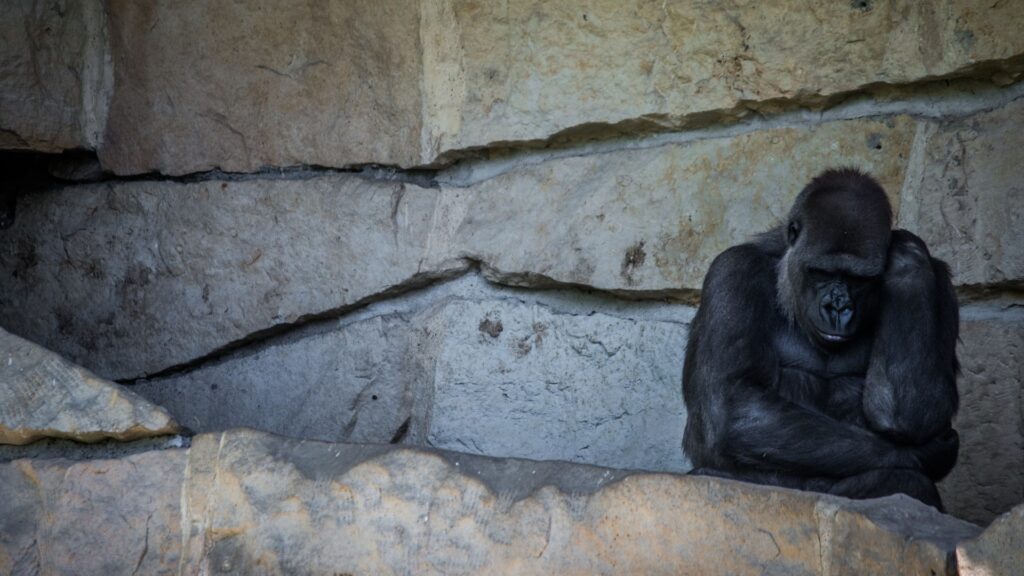
(c) J McArthur
Do you remember how you felt during lockdown? The repetitive days, the stillness, the feeling of being trapped. Being captive in your own home, cut off from the world you have always known.
Now imagine that, but with no end in sight. This is the reality for millions of wild animals, locked up for life in zoos, circuses and dolphinaria around the world.
During the first year of the pandemic, the World Health Organisation reported a 25% increase in our anxiety and depression globally. But, despite the psychological toll of the pandemic, many of us were eventually able to go back to our regular lives. But what if lockdown had never ended?
Wild animals exploited in captivity for human entertainment are facing an endless lockdown. They are trapped, living a life of repetition, cut off from the world they should know. Except, unlike us, these animals don’t get to go back to their ‘real lives’. Their cage or tank is all most of them will ever know.
Not just a human issue
Many species are considered sentient beings and able to experience ‘feelings’. But, like humans, these animals can also experience mental distress. In the UK, vertebrates, decapods and cephalopods are all recognised as sentient by law. It’s been proven they can not only feel positive emotions, but negative ones too. Therefore, sadly, it’s all too possible for wild animals to suffer mental health issues.
Like humans, every animal has different needs, and if those are met, a ‘positive mental state’ can be achieved. The ‘five domains model’ refers to an animal welfare framework, which assesses the wellbeing of an individual animal based on five core needs: nutritional, physical environment, health, behavioural interactions and mental state. As you can imagine, for a wild animal in an artificial environment, it can be near impossible to sufficiently meet all of these needs.
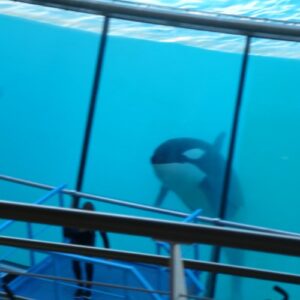
An orca at a dolphinaria
One example is keeping cetaceans (dolphins, whales and porpoises) in a tank. The complex needs of these intelligent, sensitive species simply cannot be replicated in captivity. A captive environment will always be unsuitable, not least because of the limited space compared with expansive wild habitats, and the lack of social complexity. This can result in a negative mental state, and it’s widely reported many captive dolphins are regularly given antidepressants.
It can also be incredibly difficult to appropriately replicate wild diets in captivity. Many animals, especially opportunistic species, naturally spend much of their time foraging and hunting in the wild. Being directly fed mitigates that need, which can significantly alter the behaviour of animals in captivity.
A former zookeeper who studied animal behaviour and biology, Born Free’s Captivity Research and Policy Manager, Chris Lewis, has seen first-hand the negative impact captivity can have on animals’ mental well-being. “I witnessed countless, distressing signs of mental distress, in many species, throughout my eight-year career working in zoos and other captive animal facilities.”
Now, at Born Free, Chris fights for wild animals exploited in captivity on a daily basis. He works with our expert team to inform and influence wild animal-friendly policy, and campaign for changes in laws to ensure welfare standards are being met and improved.
What is zoochosis?
In 1992, Born Free Co-Founder the late Bill Travers MBE coined the term ‘zoochosis’, to describe obsessive, repetitive and unnatural behaviours in captive animals. These ‘stereotypic’, repeated behaviours appear to lack a clear function or goal.
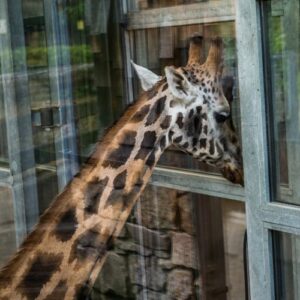
Captive giraffe (c) J McArthur
Born Free helps people to recognise distress in captive wild animals. Some examples include:
- Elephants swaying side to side
- Big cats and polar bears pacing
- Giraffes licking the bars of their cage
- Great apes regurgitating food then re-swallowing
- Birds plucking out feathers
- Monkeys pulling out their fur
- Snakes ‘glass surf’, climbing their tank walls
- Cetaceans and sea lions circling their pool edge
Sadly, zoochosis is an ongoing issue and remains common in zoos, despite some zoos making use of enrichment programmes in an attempt to reduce these behaviours.
A reciprocal relationship
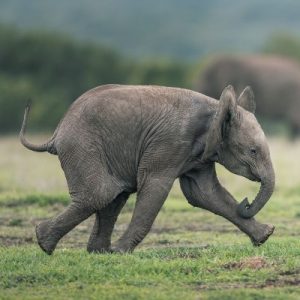
(c) www.georgelogan.co.uk
It’s been proven that nature has a positive impact on our physical and mental health. A 2021 report by the Mental Health Foundation found 70% of UK adults said being in nature improved their mood, and nearly half that it helped reduce stress. If we know the natural world has the power to restore human wellbeing, what does it say about the well-being of wild animals held in captivity, denied that connection?
It’s not surprising so many captive animals exhibit symptoms of profound psychological distress. Stereotypic behaviours are not quirks, they are indicators of mental suffering. Born Free works hard to raise awareness and the public increasingly recognises these behaviours and what they represent. There is growing support for the phasing-out of keeping wild animals in captivity, not least species with especially complex needs including elephants, giraffes, polar bears, big cats and great apes.
How you can help
Through our Raise the Red Flag programme, you can take meaningful action by reporting concerns about captive wild animals and speaking out. You can help us build a stronger case for change. Your reports can highlight poor conditions and suffering that might otherwise go unnoticed. With enough voices, we can push for urgent improvements, and hold individual facilities accountable.
By raising the red flag, we not only expose the reality of captivity, but also help drive the case for stronger zoo standards that do far more to prioritise animal welfare. Ultimately, addressing psychological suffering means working toward a future where captivity is no longer seen as acceptable for wild animals, where their needs come first, and their freedom is respected.
We owe it to them. For their health. For their well-being. For all our futures.
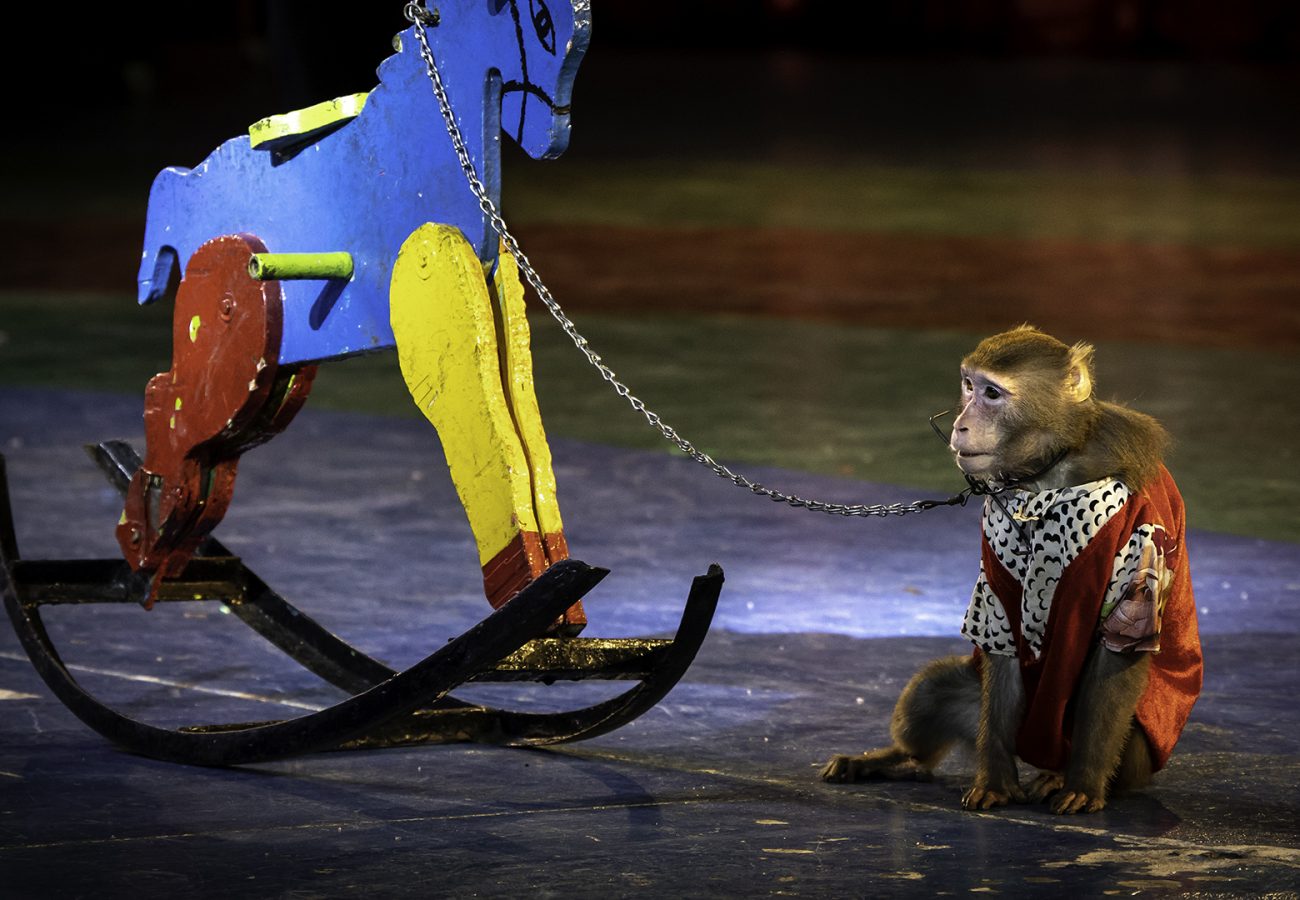
Raise The Red Flag For Captive Wild Animals
Born Free needs you to Raise the Red Flag, and report the suffering of animals in captivity, so that we can take action to make it end. Share your eyewitness experiences, and find out how you can help.
